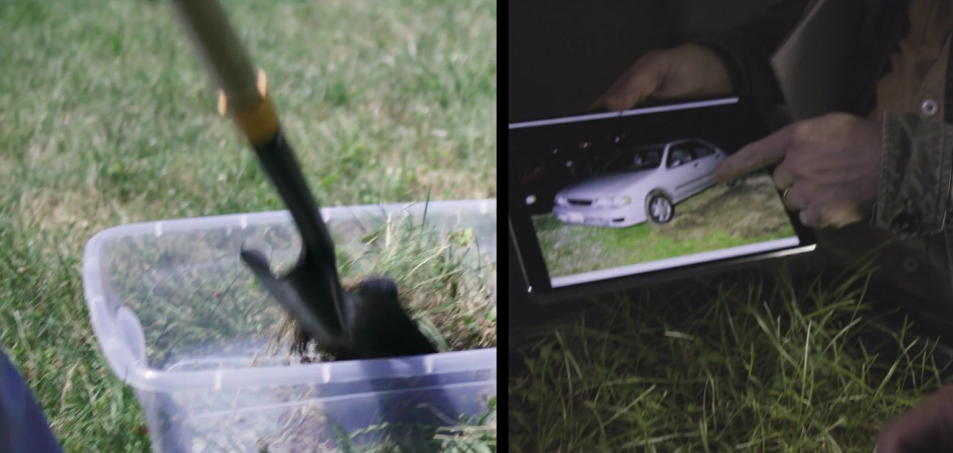
This editorial article is a part of Technical.ly's Growing Industries month, when Technical.ly Delaware is focusing extra reporting on the topic of biotech.
To be clear, Erik Ervin, Ph.D. — chair and professor of the Department of Plant and Soil Sciences at University of Delaware — is not a crime investigator, or even a plant forensic scientist.
He took on those roles for the first and only time when he was called on by the producers of “The Case Against Adnan Syed,” an HBO docu-series that delves even deeper into the Baltimore murder case of Hae Min Lee, made famous by the ultra-popular podcast “Serial.” (If you didn’t binge the podcast, you can read the main details in this Baltimore Sun article).

Erik Ervin. (Courtesy photo)
“It came down to the fact that I was the closest turf grass physiologist to Baltimore,” said Ervin, in an interview with Technical.ly.
Ervin was called to help establish evidence concerning Lee’s car, which was found abandoned in a grassy lot on February 28, 1999, 46 days after she disappeared on January 13. If it could be scientifically proven that the car had been abandoned there later than January 13, it could be evidence that Syed, who was convicted of murdering Lee in 2000, is, in fact, innocent.
“The filmmakers were trying to get my help with determining that the car had been moved there at a date after the actual murder occurred, so that they could get some evidence that, no, Adnan couldn’t have done it because we knew his whereabouts and he would have an alibi,” said Ervin.
Ervin was not aware at the time that the tests he was running had anything to do with the case made famous by “Serial.”
“I had no idea until the documentary actually came out that I was working on such a high-profile case,” he said. “It was good — I kept my objectivity that way.”
The job started with a trip to the grassy patch in Baltimore where Lee’s car had been found 20 years ago to gather grasses for examination. In photos taken by detectives in 1999, green grass was visible under the trunk area of the car. The question was — as seen in episode two of the documentary — would the grass have been green beneath the car’s trunk if it had been there for 46 days?
“I got down on my hands and knees and identified the different plant species that were there 20 years after,” Ervin said. “Then I dug some of these up to take them back to the university, where I put them into a controlled environment growth chamber on campus, which I then proceeded to try to simulate the weather and light conditions over the 46 days.”
Ultimately, Ervin observed that most of the grass stayed green, just like in the picture.
“So that piece of information didn’t help us to draw any conclusions about the case,” he said.
When he's not helping investigate crimes (which, again, is pretty much all of the time), Ervin's main focus is on sports turf.
A second round of grass investigation was requested, as seen in episode four, to determine if the green grass particles visible on the car’s tire treads in the photos might disprove that it had been there for 46 days.
“We detached the leaf blades from these lawn grasses and put them in the growth chamber again under the same simulation of temperatures and moisture and light to see how long it takes the green leaf blades to turn brown,” he said.
Again, the grass stayed green.
“Because, remember, we’re talking about temperatures close to freezing — it’s kind of like if you put lettuce in the refrigerator and keep it there for 4 to 6 weeks. It’s going to start wilting and looking pretty bad, but it’s still probably going to stay green,” said Ervin.
“They cut out a lot of what I said in the film, but what I said was: Again, my results weren’t conclusive, that some of the leaf blades started to lose their color and turn brown, but some still had color,” he said. “That’s what I found, so again, I speculated that yes, the car could have been moved there, it may have been moved there much later than the day of the murder, but my simulation results couldn’t say that with any confidence.”
When he’s not helping investigate crimes (which, again, is pretty much all of the time, though he notes that UD’s Department of Plant and Soil Sciences does offer a class called “Environmental Forensics”), Ervin’s main focus is on sports turf.
“I usually study how the standard turf grass species that we use on lawns, golf courses and sports fields respond to environmental stress such as high temperatures, freezing temperatures and drought,” he said. “Once we characterize them, a lot of my work has involved determining the right fertilizer, the right amount of water, or the best organic approaches.”
“A lot of people are surprised that there are turf grass professors in the world, but if you look around urban and suburban areas, mowed grass surfaces are all around us, in our campuses, in our parks, at our houses — all of our soccer, football and baseball fields — if you total all that up, it’s actually a $50 billion industry in the U.S. alone. It’s a big part of some people’s quality of life, hobbies, and the sports we watch on TV. If [professional athletes] are not playing on safe sports surfaces and get injured, there are huge economic consequences.”
“The Case Against Adnan Sayed” is currently available for streaming on HBO.
Join the conversation!
Find news, events, jobs and people who share your interests on Technical.ly's open community Slack

Delaware daily roundup: Over 4,000 Black-owned businesses uncovered; Dover makes rising cities list; a push for online sports betting

Delaware daily roundup: Ladybug Fest illuminates small biz; Hahnemann Hospital's biotech future; intl. politics and a Middletown project

Delaware daily roundup: DE in DC for 'Communities in Action'; diversifying the coffee supply chain; Invista's future


